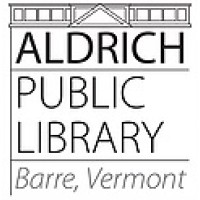
Aldrich Public Library
The Aldrich Public Library is located on a well-chosen lot across from City Park on Washington Street (US Route 302). Dedicated on September 22, 1908, it is part of an unusual historic district composed of five churches and city hall with its recently-restored opera house. Each of these buildings is at least a decade older than the library which was built with money from the estate of Leonard Frost Aldrich.






